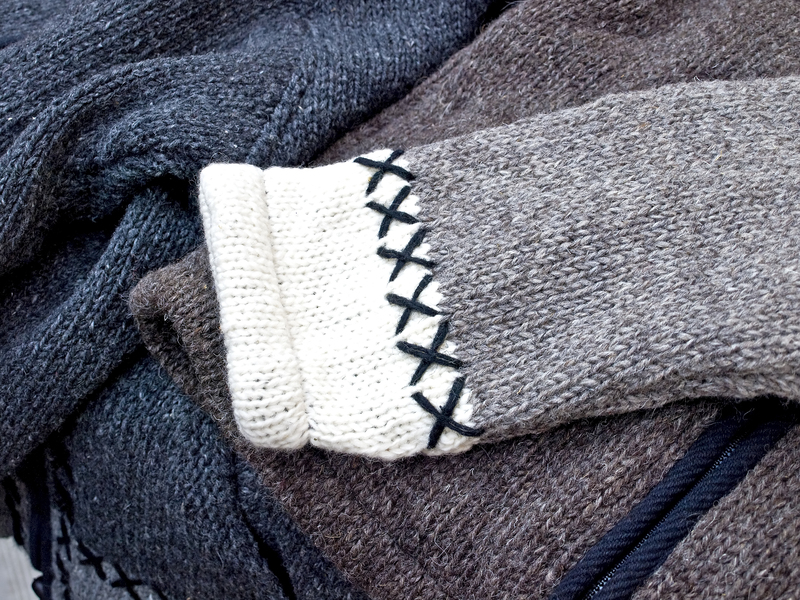Turning Cookware Waste Into Eco Opportunities: A Comprehensive Guide
In an era where sustainability and environmental stewardship are on everyone's mind, turning cookware waste into eco opportunities has become not only an ethical imperative but also a source of innovation. Old pots, pans, and utensils often end up in landfills, contributing to the growing waste crisis. However, with creative approaches and the right attitude, we can breathe new life into discarded cookware, transforming potential trash into valuable resources and unique eco products.

Why Cookware Waste Is a Growing Concern
Every year, millions of households around the world replace their cooking pots, pans, and baking trays due to wear and tear, non-stick coatings degrading, or simply because of the latest kitchen trends. Unfortunately, the majority of these items are not biodegradable. Most cookware contains metals (such as aluminum, stainless steel, and copper), non-stick coatings, plastic handles, and other materials that linger in landfills for decades or even centuries.
- Aluminum and stainless steel are valuable but often difficult to recycle due to mixed materials.
- Non-stick coatings can release toxins as they break down.
- Plastics from handles and lids add to the microplastic problem.
The ramifications for the environment are serious. Landfill overcrowding, toxic leachates, and loss of valuable materials all stem from poorly managed cookware waste. But what if we could turn this challenge into an opportunity?
Eco-Friendly Solutions for Cookware Waste
1. Recycling Cookware the Right Way
The first step in transforming cookware waste into eco opportunities is efficient recycling. Many people believe that their old pots and pans can't be recycled, but this is often not the case! Here's how you can take action:
- Separate Materials: Remove plastic handles, silicone grips, and glass lids. This makes it easier to recycle the metal components.
- Contact Local Scrap Yards: Most metal recycling centers accept cookware, especially if it's made of aluminum, copper, or stainless steel.
- Check Manufacturer Take-Back Programs: Some cookware brands now offer take-back or trade-in initiatives, making disposal more responsible and convenient.
By recycling cookware, we conserve resources, reduce landfill loads, and cut down the carbon footprint associated with creating new metal products.
2. Upcycling: Creative Second Lives for Old Cookware
Upcycling takes recycling a step further by turning cookware waste into functional or decorative items without breaking them down entirely. With a little creativity, old cookware can be repurposed in various ways:
- Planters and Garden Tools: Old pots or pans make perfect planters for herbs and flowers. Lids and spatulas can become quirky garden markers.
- Wall Art and Decor: Turn well-used utensils and pans into unique wall hangings, clocks, or mobiles for a rustic-chic look.
- Storage Solutions: Large pans and colanders can be used for organizing office supplies, kitchen accessories, or even as bookshelves.
- DIY Lighting: Metal colanders or skillets can be creatively transformed into pendant lights or lampshades, casting interesting patterns.
These upcycling ideas not only minimize waste but also encourage creativity and personalization, turning your old cookware into eco-friendly opportunities for unique home decor.
3. Donating and Sharing: Extending Cookware Life
Not all discarded cookware needs to be dismantled or repurposed. If your pots, pans, or utensils are still in usable condition, consider:
- Donating to Charities that set up kitchens for the homeless or disadvantaged.
- Sharing via Online Community Groups such as Freecycle, Facebook Marketplace, or neighborhood forums.
- Swapping events or garage sales, which reduce demand for new cookware and extend the functional life of items.
Giving your cookware a second home is a simple way to reduce waste and help those in need.
Innovative Eco Opportunities From Cookware Waste
Green Business Ventures: Turning Cookware Waste Into Profits
Entrepreneurs and eco-conscious businesses are finding new ways to turn kitchen waste into eco opportunities by using discarded pots and pans to create innovative products and services. Here's how some are making a difference:
- Artisan Goods: Transforming old cookware into reusable kitchen tools, quirky cup holders, or elegant lamp stands, marketed through eco-friendly online platforms.
- Metal Recovery: Some businesses specialize in extracting valuable metals like copper from old cookware, refining it for the electronics and renewable energy industries.
- Upcycling Startups: Companies that collect cookware waste and turn it into stylish furniture, outdoor art installations, or even playground equipment.
- Workshops: Hosting classes on upcycling cookware, fostering community creativity and sustainable thinking.
These ventures not only generate income but also educate the public and promote circular economy principles in the kitchenware industry.
Case Studies: Global Initiatives Transforming Cookware Waste
Several pioneering initiatives have already made strides in reimagining cookware disposal as an eco opportunity:
- RePan Project (USA): Collects damaged or obsolete cookware from restaurants and households. The metals are melted down and turned into new 100% recycled pans, creating a closed-loop supply chain.
- Bakeware Revival (Europe): Old baking trays and muffin tins are collected, cleaned, and distributed to community kitchens, reducing both waste and costs for charities.
- Artisan Marketplaces: Online platforms like Etsy and local farmers' markets often feature artists who create upcycled cookware art, from garden sculptures to kitchen organizers.
Such examples showcase how turning cookware waste into eco-friendly products is more than a trend--it's a practical, scalable solution for environmental challenges.
The Role of Manufacturers in Sustainable Cookware
Eco-Friendly Cookware Designs & Closed-Loop Systems
Manufacturers have a crucial part to play in mitigating cookware waste and transforming potential waste into eco opportunities. Some leading companies have begun:
- Designing cookware without coatings that are harmful or that degrade quickly, making products longer lasting and easier to recycle.
- Using recycled metals in new product lines, reducing the demand for virgin raw materials.
- Offering take-back programs or incentives for consumers to return old cookware for proper recycling.
- Developing modular cookware with replaceable parts, so only the worn out handle or base needs replacing, not the whole item.
Such closed-loop initiatives not only reduce landfill-bound waste but inspire consumers to make greener purchasing decisions.
Practical Tips: How You Can Turn Cookware Waste Into Eco Opportunities at Home
-
Assess Before Discarding:
Can your pot or pan be re-seasoned, repaired, or cleaned with eco-friendly methods before you consider it waste? -
Research Local Recycling Rules:
Contact your waste management provider to ask which cookware materials are accepted and how to prepare them. -
Get Creative with Upcycling:
Try making planters, storage bins, or wall art from your old cookware. -
Join or Organize Swap Events:
Help build community while reducing waste by swapping out kitchen items you no longer need. -
Support Sustainable Brands:
Look for cookware companies committed to eco-friendly materials, design, and end-of-life solutions.
Remember: Every piece of cookware diverted from landfill means less environmental harm and more resources saved for future generations.
Overcoming Challenges: What Makes Cookware Recycling Difficult?
Despite many eco opportunities, recycling cookware is not without its hurdles:
- Mixed Materials: Many pots, pans, and utensils combine metal, plastic, glass, and silicone, which are hard to separate.
- Unknown Coatings: Older cookware might contain Teflon or other chemicals that recyclers may not accept.
- Consumer Awareness: Many people are unaware that cookware can often be recycled or upcycled, leading to unnecessary waste.
Overcoming these barriers requires a combination of consumer education, improved product design, and better collection systems.

The Environmental Benefits of Eco-Friendly Cookware Waste Management
Turning cookware waste into eco opportunities has a host of environmental advantages:
- Conserving Natural Resources: Recycling metals saves significant energy compared to mining new ores.
- Reducing Landfill Volume: Diverting large, non-biodegradable items from landfill helps prevent toxins and heavy metals from leaching into the soil and water.
- Lower Carbon Footprint: Both recycling and upcycling use less energy than producing new items, helping to fight climate change.
- Boosting Local Economies: Upcycling projects and community swap events foster local business and sustainability.
In summary, effective cookware waste management solutions are a vital part of a greener, sustainable future.
Conclusion: A Greener Kitchen Starts With You
Every cooking pot, pan, or utensil that you keep out of a landfill is a small victory for the planet. Turning cookware waste into eco opportunities is not just a lofty environmental ideal--it's a practical and achievable goal for households, businesses, and manufacturers alike.
From recycling and upcycling to donating and supporting sustainable brands, each action contributes to a more circular, less wasteful world. Be a part of the solution--transform your kitchen waste into a resource, not a problem.